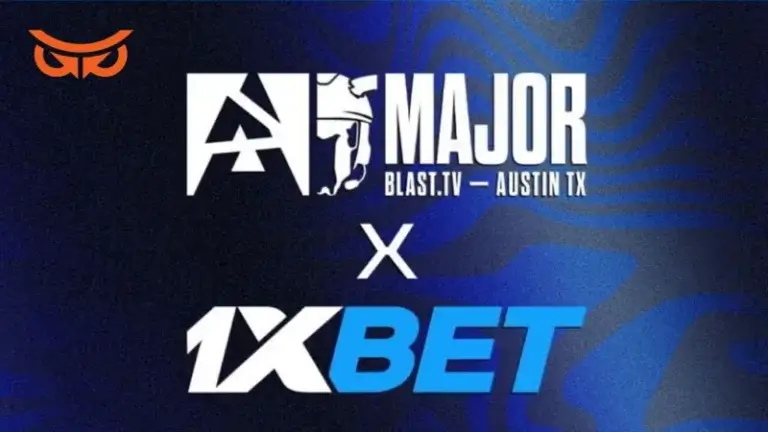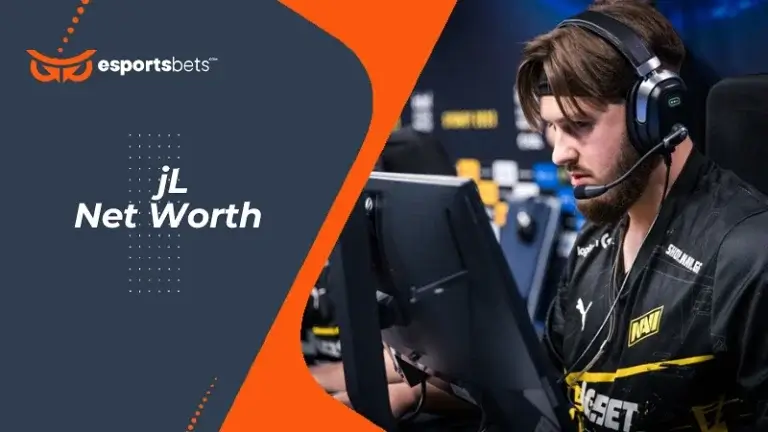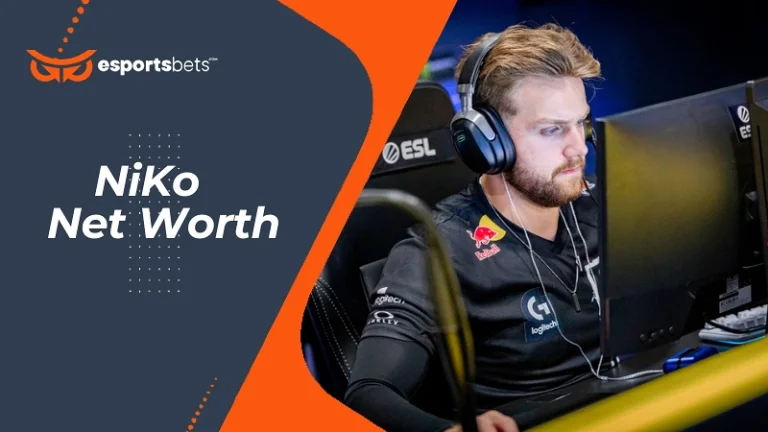What Is The Metaverse And How Will It Affect Gaming?
If you have any interest in gaming, esports, technology or popular science fiction culture, then perhaps one of the most used, and least understood, questions of recent times ‘what is the Metaverse?’
The Metaverse is a phrase which many people use, perhaps without understanding what it is, what it actually means or refers to and as such, there has been a little confusion as to what it really is.
So let’s make it a little clearer!
What Is The Metaverse?
The phrase “Metaverse” itself comes from a 1992 Science Fiction novel by Neal Stephenson called Snow Crash. In that story, people interacted with each other in the metaverse by using technology similar to VR headsets.
It is a concept that is not uncommon in science fiction films of recent times. The Matrix series of films is essentially about an unwitting shared metaverse, while in the book and film Ready Player One, The Oasis has become the metaverse that people on Earth interact with and it was the central theme throughout the story.
So, in this article, we are going to explore a good deal more about the concept and present reality of the metaverse. Finding out exactly what it is, why it is important, which companies are the driving force behind trying to create one and what the implications of this are for esports, technology and the individual.
Let’s begin therefore, by answering the simplest question as clearly as we can.
What do we mean by a Metaverse?
Examining the etymology of the word doesn’t really help in explaining what it is. It translates roughly as something like beyond the universe. But that definition in no way clarifies what the Metaverse is.
Essentially, when people talk about a Metaverse, what they describe is an alternative reality. A wholly digitalised universe that links all people, objects and things together and where individuals can interact with all aspects of the Metaverse by using different forms of technology.
Not only that, but the Metaverse will have a tangible value and meaning within the non-Metaverse reality. The things you can win and own in the Metaverse will transcend the digital and have meaning and value within the real world too.

Now one of the questions people ask at this point is how does that differ from the Internet? That is an online digital universe that is expanding exponentially and with which we interact daily.
This is best answered by viewing the current Internet as being a 2-dimensional one. We can add things to it, we can view things, we can download things from it, but we cannot immerse ourselves wholly within it.
It is this fundamental next step of total immersion of the self within a digitised universe in which we can value things, manipulate objects and interact with others regardless of where that person is physically in the world, that makes the Metaverse so different and such an appealing goal for so many tech companies.
So when we ask “what is the metaverse” and “why do we need a metaverse rather than the Internet”, essentially the difference is that we utilise the Internet, but we become part of the Metaverse.
Why Is The Metaverse Important?
The Metaverse is so important because many top companies that drive innovation, change and technological development, have recognised that this is the next big step in the digital evolution.
Facebook founder Mark Zuckerberg for example stated that the Metaverse will be the “next generation of the Internet and next chapter for us as a company.” And that its creation would provide “entirely new experiences and economic opportunities.”
This was followed just a short time later by Facebook changing its corporate name to “Meta”, highlighting the companies desire to have a name that goes beyond the Internet and starts to explore the metaverse through AR and VR technology.

The company has also announced that it is set to hire around 10,000 people across the EU to work exclusively on the Metaverse.
While the sites that “Meta” owns such as Facebook, Instagram and Whatsapp will not see a name change, the parent company that owns them is now called Meta and it is clear that its focus remains on the Metaverse and not an update of current technology.
Meta owner, Mark Zuckerberg stated that the existing Facebook brand couldn’t “possibly represent everything that we’re doing today, let alone in the future.” And that the change to Meta was needed to usher in a new era for the group of companies.
Major Players of Today and Tomorrow?
Other companies such as Google, Apple and Microsoft have all been developing tools that have the main aim of bringing together the virtual and real worlds. Generally, we know these items as Virtual Reality tools (such as headsets and glasses) or Augmented Reality tools and software.
It is here the goal of a Metaverse is important as it means that in the quest to achieve this, companies will have to devise more complex and innovative technological solutions to allow people the kind of total immersion and unfettered access to the Metaverse as is mooted by those that champion it.
So, we will see the Metaverse responsible for companies developing and acquiring new and more exciting technology, but we will also see the Metaverse responsible for many other changes in how we relate and access the digital world.
Sure, there is a dollar value attached to the creation of a Metaverse, and that amount is probably immeasurable at the moment as the potential of the project is so vast. However, it is more than the monetary gains that interest many people.
It is the chance to perhaps create a boundless universe, where the only limitations are our imagination and ability to create with the technology we possess.
So, if we were being a little tongue in cheek and considered what is the metaverse in terms of an opportunity for the big tech companies of this era. In essence, it is a chance for some of these companies to play God and shape our digital destiny.
Who Else Is Interested In Creating A Metaverse?
Don’t be fooled into thinking it is just the big tech companies like Facebook, Google, Apple and Microsoft that are driving the Metaverse project. If you have any type of company, then the Metaverse is something that will, at some point, impact you and offer you opportunities that never previously existed.

Now, it is the big tech companies mentioned above, game developers, esports organisations, streamers, gamers, social media companies, and large online retailers that are showing the most interest in creating the Metaverse, all for differing reasons.
Microgaming for example announced that it plans to roll out its own Metaverse to rival Facebook and its Microsoft Teams software has made tentative steps towards this by having 3D avatars and what it calls “immersive meetings.”
It’s not just tech companies that want a metaverse. Retailers are of course interested in being able to sell their goods, or even digital goods such as NFTs, within the Metaverse. Game companies and esports teams and individuals are interested in using the Metaverse to create more immersive, exciting and accessible gaming experiences not just for the players, but the viewers too.
So, what will that look like for esports competitors and gamers? Let’s look at this in a little more detail.
What Will The Impact Of The Metaverse Be In Gaming?
Games such as Roblox and Fortnite have been credited with promulgating the notion of a Metaverse within the gaming community and while that is true to a certain extent, the impact in gaming will be felt not just across a small number of games, but across every game.
Not only will players and viewers gain a more immersive experience (the feeling of actually being there to watch, or competing from a first-person perspective), but by the integration of eCommerce and the proliferation of Non-Fungible Tokens (NFTs) and other collectables in the Metaverse, people will be able to interact with and support their favourites idols and players in new ways.

Of course, the technology required to achieve this, not to mention the changes needed to make games more “Metaverse-compliant”, still need to be made. But industry experts feel that we are on the brink of making just such a step.
Essentially, the ultimate aim is to allow gamers to feel as if they are part of a real game, albeit digitised and for those watching on, to be able to feel as if they are in the crowd at the event and able to interact with others in the audience and with vendors at the virtual-stadium, as they would in the real world.
A Strange Dichotomy At Play – Creating Multiple Metaverses When There Can Be Only One
However, there is one issue here that does strike as being somewhat paradoxical to the nature of what a Metaverse should truly be.
In all literature and film, the Metaverse that is talked about is a singular entity. There is no, for example, Facebook Metaverse, and then an Apple Metaverse and then a separate one for Amazon. Every aspect of your digital life meets at the Metaverse and you can move from one to the other seamlessly.
So, with a number of companies and even game designers seeking to develop their own Metaverse, how is this going to fit together in the future if we are to achieve a genuine all-encompassing digital alternative reality?
That is something that will need to be looked at in the future, although we also should not rule out the prospect of a Multiverse, as well as a Metaverse in the future. And that is when things could get really complicated!
What Will A Future Metaverse Look And Feel Like?
In short, it will feel and look as real as the technology we have at the time allows it to be. In Ready Player One, the protagonist wears a futuristic kinetic suit that can allow them to physically feel when they have been touched in any way in the digital world. That can range from something as soft as holding someone’s hand, to being punched in the stomach.
Our technology is still some way off just such an item of tech just yet, but over time, as VR and AR equipment improves and develops, this will allow us to blur the lines between the Metaverse and reality even further.
Initially, the future Metaverse will probably feel like you have been transported inside the biggest digital game ever made, however, the lines between it and reality will be obvious.
As technology grows though, those definitions and boundaries will soon start to merge.

How Far Away Are We From A Real Metaverse?
Much, much closer than you think. We already have Generation Z and Millennials well aware that their online presence and persona is as important to them, if not more important, than what they wear and look like in the real world. We also have a key demographic that is comfortable with the current digital age.
With companies investing billions in seeing how they can make the Metaverse a reality, we are not too far away from taking the step into it for good, rather than, as we are at present, dipping our toes into it with the purchase and sale of items such as NFT and the first incarnations of VR and AR.
It is my belief that within ten years, we will have some kind of Metaverse and within 20 years, the developments that it inspires will have changed the way we interact with all aspects of the digital world forever.
It is now up to the designers, movers and shakers to ensure that those interactions are all for the positive.
Like Thanos, the Metaverse is inevitable. It’s just a question of what kind of Metaverse we want to create for ourselves.
It could well be that it is humankind’s opportunity to build our own entirely immersive utopia, where we can be the heroes, or villains, that we want to be. Where we can transcend what is physically possible and live by the rules of the digital realm.
And that sounds like one hell of an exciting future.





















